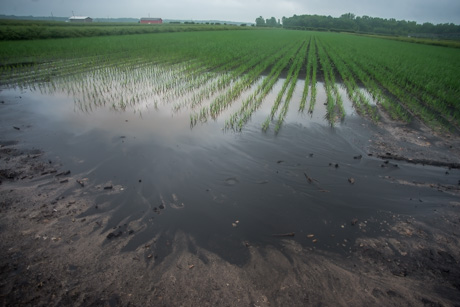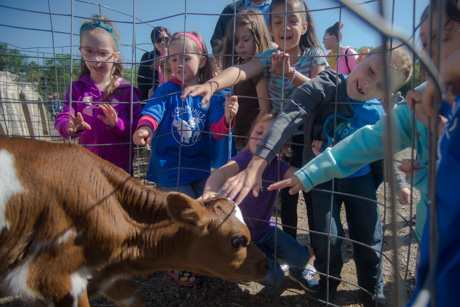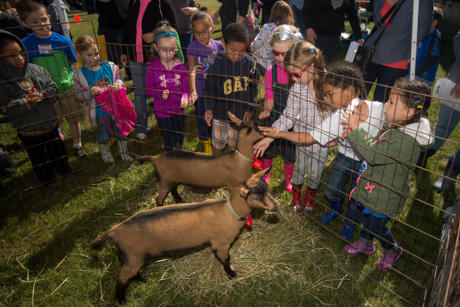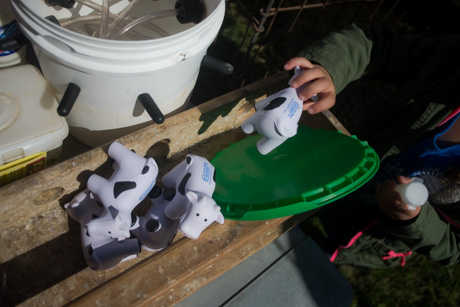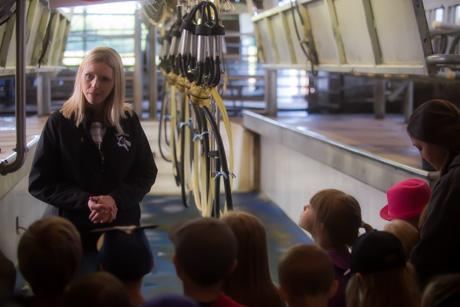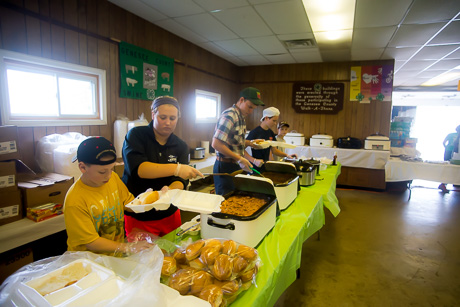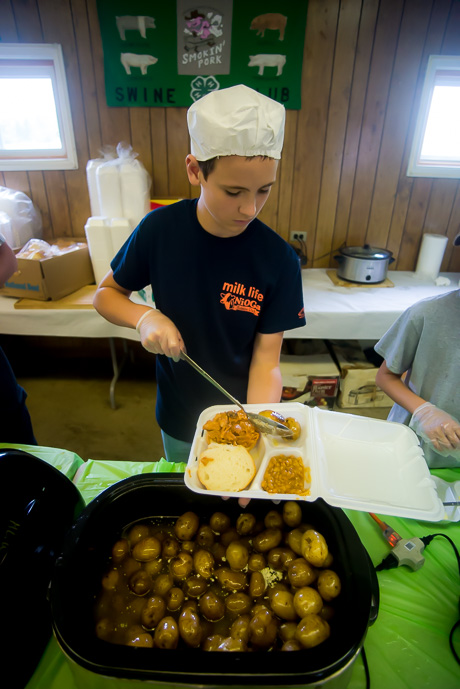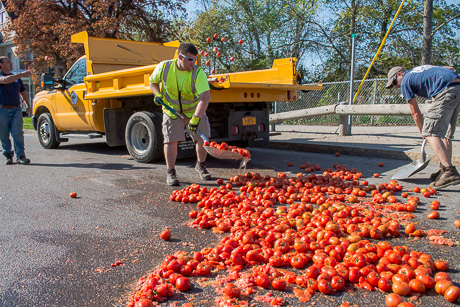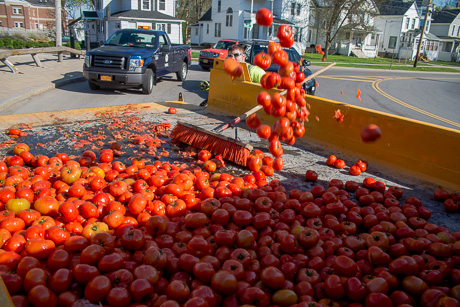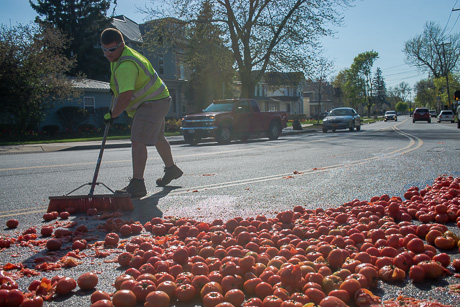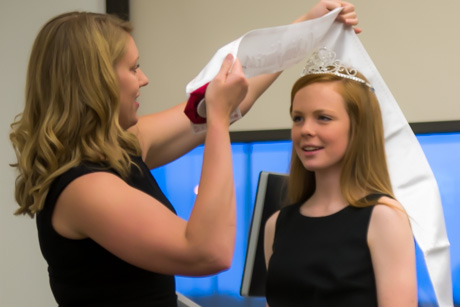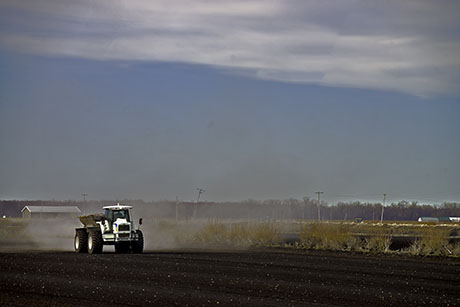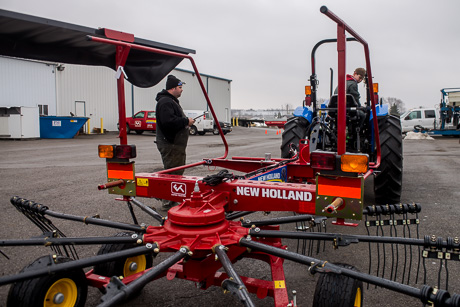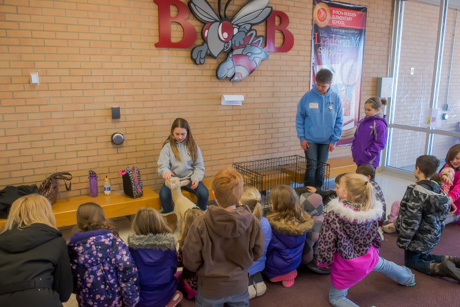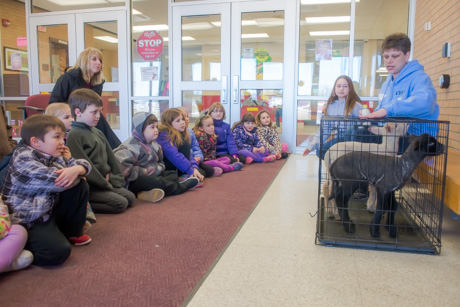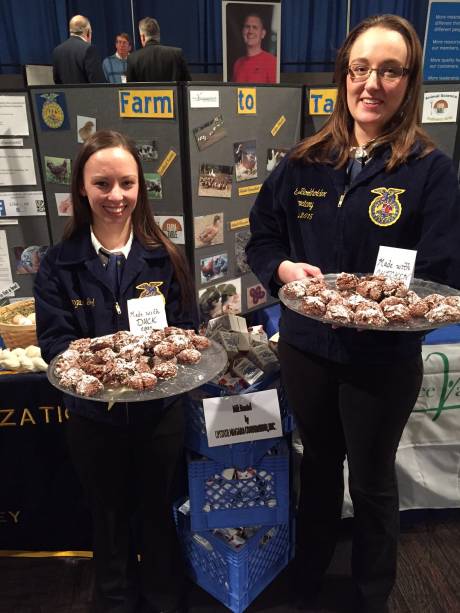Press release:
Governor Andrew M. Cuomo today announced $1.4 million in funding for projects related to the research, promotion and development of New York’s flourishing agricultural economy. Approved by the Genesee Valley Regional Market Authority, this funding includes support for a second year of malting barley research at Cornell's New York State Agricultural Experiment Station, equipment and operating expenses at the New York Wine & Culinary Center, and funding to help Western New York maple syrup producers better market their products.
“The agricultural industry is vital to the success of Upstate New York, and by making targeted investments like this we are planting the seeds for long-term growth for New York’s farmers and agricultural entrepreneurs,” Governor Cuomo said. “This funding will support both new opportunities and existing success stories, and ultimately give farmers and vendors the tools they need to thrive in today’s competitive economy.”
Every year, the Genesee Valley Regional Market Authority, in cooperation with the New York State Department of Agriculture and Markets, solicits applications to assist in the development of agriculture and agriculture-related businesses in a nine-county region, which includes Genesee, Livingston, Monroe, Ontario, Orleans, Steuben, Wayne, Wyoming and Yates counties. On Friday, March 27, the Genesee Valley Regional Market Authority Board of Directors voted to fund the following projects in 2015:
· NY Wine and Culinary Center - $300,000 – equipment replacement, facility repairs and expansion, and operational costs;
· New York Wine and Grape Foundation - $216,664 – Phase Five of the NY Drinks NY campaign;
· Western NY Maple Producers - $33,336 – Mobile maple exhibit;
· Cornell Cooperative Extension of Wayne County - $60,231 – To provide support and training to farmers through a farmers’ market specialist program;
· Cornell Cooperative Extension of Wyoming County - $43,416 – To provide specialty cut flower, vegetable and mushroom production for the county’s Bhutanese market;
· New York State Agricultural Experiment Station – $74,518 – To support research to improve the profitability and productivity of lima beans in New York State;
· New York State Agricultural Experiment Station - $159,893 – To support maintenance and equipment, including a temperature controlled ploy house and summer scholar support.
· New York State Agricultural Experiment Station - $241,716 – To accelerate production of organic grains, corn and soybeans in Western NY;
· New York State Agricultural Experiment Station - $133,242 – To support the second year of a multi-year research plan for malting barley production in New York State;
· Foodlink - $100,000 – To purchase equipment necessary to maximize efficiencies and create product diversity in value-added product lines.
In addition to these projects, Governor Cuomo announced $250,000 in funding to support soil and sediment control projects in counties located in the Genesee River Watershed, including portions of Allegany, Cattaraugus, Genesee, Livingston, Monroe, Ontario, Orleans, Steuben and Wyoming counties. Provided by the State Department of Agriculture and Markets and the New York State Soil and Water Conservation Committee, soil and water conservation districts can apply for grants of up to $10,000 for projects that reduce erosion or control sediment in the Genesee River Watershed. These projects can include reduced tillage practices, cover cropping, critical area seeding, riparian buffer, grassed waterways, filter areas, water and sediment control basins.
Districts can apply for the grant through the Grants Gateway program at https://grantsgateway.ny.gov/intelligrants_NYSGG/login2.aspx.
State Agriculture Commissioner Richard A. Ball said, “The Genesee Valley and its surrounding areas are extremely critical to the health and diversity of New York agriculture. This funding will support that diversity by making strategic investments in emerging industries that have a great future here in New York State, while protecting the region’s natural resources.”
Dennis Piedimonte, Chairman of the Genesee Valley Regional Market Authority, said, “We’re happy that we can be of assistance of the agriculture community in New York State through the money we are able to raise at our market. We believe that this funding is going to be put to good use through research that will in turn help New York’s agricultural economy move forward.”
Jack Moore, board member of Genesee Valley Regional Market Authority, said, “It’s very good to see some of the GVRMA profits put to good use in the region for production agriculture. I encourage more entities to apply for such grants in the future.”
Assembly Majority Leader Joseph D. Morelle said, “For the past several years, our region has benefited from the innovative funding opportunity provided by the Genesee Valley Regional Market Authority and the Department of Agriculture. I applaud the State and GVRMA for investing in important organizations like the Wine & Culinary Center and Foodlink, which are using our region’s agriculture to provide a public benefit. This year’s awards reflects the legislature’s intent when we created this mechanism, which continues to provide vital funding to promote and advance our area’s agribusiness.”
Senator Mike Nozzolio said, “This funding is extremely important to the continued success of the growing food and beverage industry in New York State and it enhances the world class agricultural research conducted at the Cornell Agricultural Experiment Station in Geneva. Agriculture is our state and region’s number one industry, and continued support such as this furthers the growth of the industry by providing jobs, increased crop value and product promotion.”
